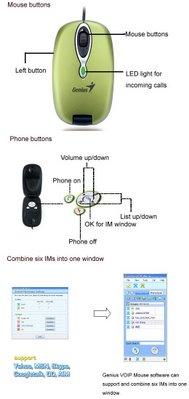I think it is as important as explaining GPL v.2.0 or GPL 3.0, to explain to people that open source is a also a business model. In a business people expect to make money with the products/services they provide.
But when it came to Asteisk, which I have known since it's humble beginning. I met Mark Spenser, the creator of this project, once at a Linux world expo, a long time ago. I am sorry to say that not many people were around the booth but Mark was pretty enthusiastic and carried me through all the details. He had it all together with all the hardware and software running, allowing to make demo calls through a real life PBX.
One interesting thing about trademark was, There was a fork of Asterisk at that time, Asterisk-NG if I recall right. I asked about it from Mark, and his answer was a shake of his shoulders and said "yeah, I heard about it". I think it was appropriate response at that time, as he was paying more attention to the project/product than to business and copy rights or trademarks.
But now Asterisk is vastly different. It is a business and as with any business, you start hiring lawyers, and lawyers will always find things to do. And somethings are not pleasant but you got to do it.
Last week I read a few articles about asterisk@home. and one esteemed writer that I read regularly, referring to the matter as "dark side of Asterisk". Smith on VOIP got most of it right. But if he had referred to recent DIGG and DIGGAME saga, he would have understood the legal process.
I am not a lawyer (IANAL) and what I understood is that if you do not try to protect even attempt to protect your copyrights or trademarks, you might loose them, in a court, in the future. You have to show evidence that you did take steps to protect your trademark.
So Asterisk@home, a super project, that I use day to day, happened to be the target. It has a name too close to Asterisk, if asked from any one not familiar of the projects they might think Asterisk@home is a subproject of Asterisk.
I think it is right for Asterisk / Digium to go after Asterisk@home although not pleasant, the new name, Trixbox seem to be doing fine and the same following that Smith mentioned Asterisk@home, welcomed and enveloped the TrixBox.
I really do not see Smiths arguments but all I can say is open source projects are run by living people, who like money like Smith do. If his idea is only to write and inform people of VOIP, why Google ads and sponsored ads on his site? Because they make money and if Smith can earn some money while enjoying his writing all the better.
Asterisk / Digium did nothing much different, monetize their ideas. If Smith sees one of his articles copied word by word by a spam blog, I can only guess how he would feel. May be asterisk thought the same way.
Has Asterisk / Digium gone after OpenPBX? although it is based on Asterisk and does some aspects better than Asterisk, I don't see Asterisk going after them legally or otherwise.
I prefer the writing on the subject by Alec Saunders, he sees the same issue as Smith does, but Alec's article is more pleasant and to the point. Tom Keating also speaks of the same matter, and much closer to Smiths thinking.
Also remember that trixbox is under the arms of Fonality and Fonality is a direct competitor to Asterisk. Many analysts and writers have said that fonality might do better than Digium in the SMB IP PBX space, using Asterisk itself!
So you want the best answer! Ask yourself what would you do if you were Asterisk /Digium ? that is the best answer, whether it is right or wrong.
By the way people who feel sorry for Trixbox, write Trixbox (formally Asterisk@home), I do where ever it deems necessary it might help to let people know.
Another thing is selecting well known well used words as trademarks is not a good idea. Why do you think Microsoft settled with Lindows? food for your thoughts.
Links;
SmithonVOIP the darker side of digium
Alec Saunders Protecting tha Asterisk Brand
Tom Keating Who is redirecting trixbox web traffic









